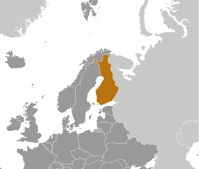
#17,557
Last Thursday and Friday (see here and here) the Finnish Food Authority (Ruokavirasto) announced outbreaks of H5N1 on 5 fur farms, infecting thousands of blue foxes, raccoon dogs, and mink.
Other than recommending the use of PPEs, and urging that employees contact health care for instructions if they fell ill, little was said about mitigation efforts (e.g. quarantine, culling, etc.).
Somewhat surprisingly, the agency stated that fur farms in Finland did not fall under the jurisdiction of the `animal disease authority'.
Apparently this `gap' in governmental oversight is being addressed, according to the following statement from the the Finnish Food Authority.
(Translated)
The Finnish Food Agency is preparing to combat bird flu on fur farms
July 18, 2023
The Ministry of Agriculture and Forestry changed the disease classification of bird flu on fur farms on Tuesday 18 July 2023. This gives the Food Agency and regional administrative agencies the opportunity to take more effective disease control measures than the recommendations at those fur farms where bird flu infection has been confirmed. The first official actions will be initiated as soon as possible. Currently, the infection has been confirmed on five fur farms. Investigations are still ongoing.
As a first measure, the Regional Administration Office imposes site-specific activity restrictions to prevent the spread of infections through animals, feed, manure or other material. The Finnish Food Agency is currently preparing decisions to euthanize animals on infected fur farms and to organize euthanasia. The number of animals ordered to be euthanized is based on a farm-specific assessment of the spread of the infection on the farm. Animal owners have the right to seek compensation from state funds for animals euthanized by order of the Food Agency. The state is also responsible for the costs of other official actions to eradicate the infection.
Wild birds are the most significant source of avian influenza infection for fur animals. All fur farms must take care of the control of wild birds and rodents (e.g. bird nets, bird repellents and deterrents, protection of feed and feed storage, cleaning and proper storage of waste feed, rodent control baits) and biosecurity.
More information:
Head of Unit Sirpa Kiviruusu, tel. 0400 920503.
E-mail: firstname.surname@ruokavirasto.fi